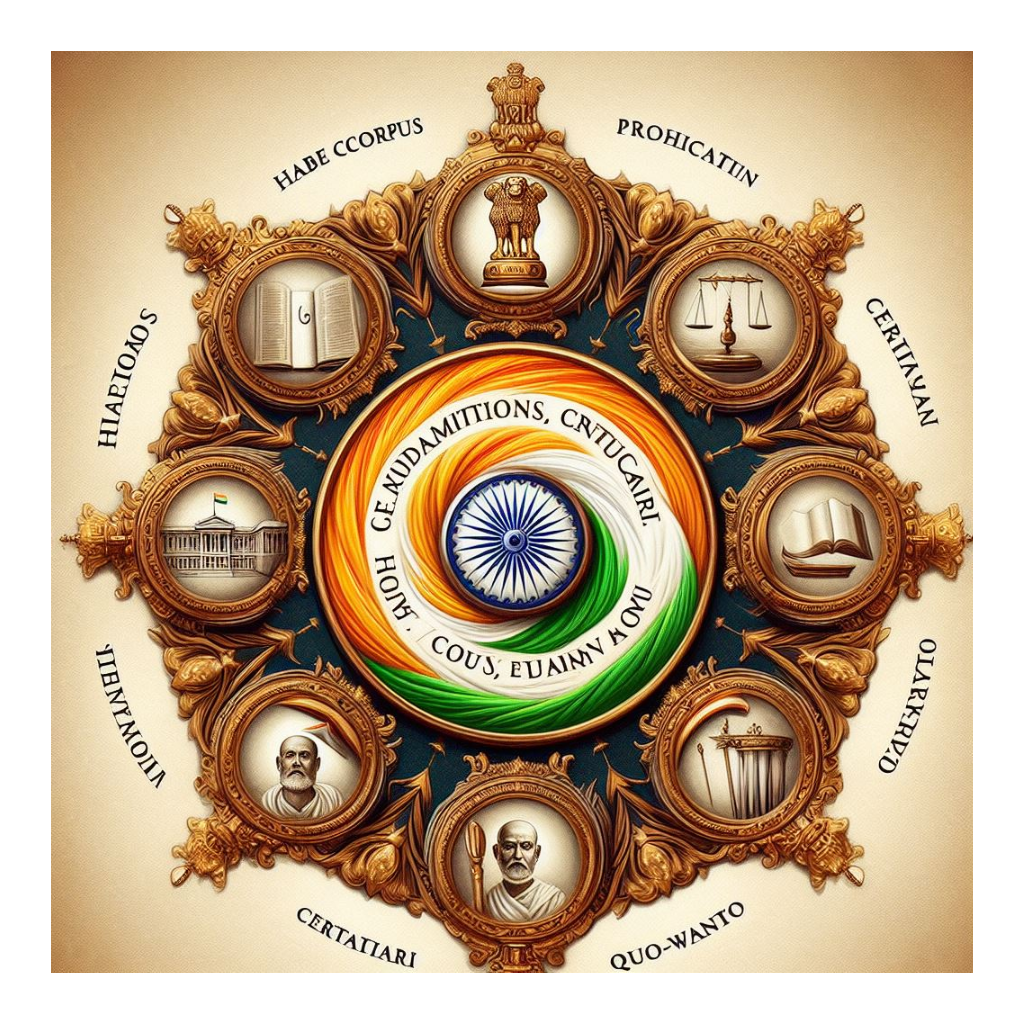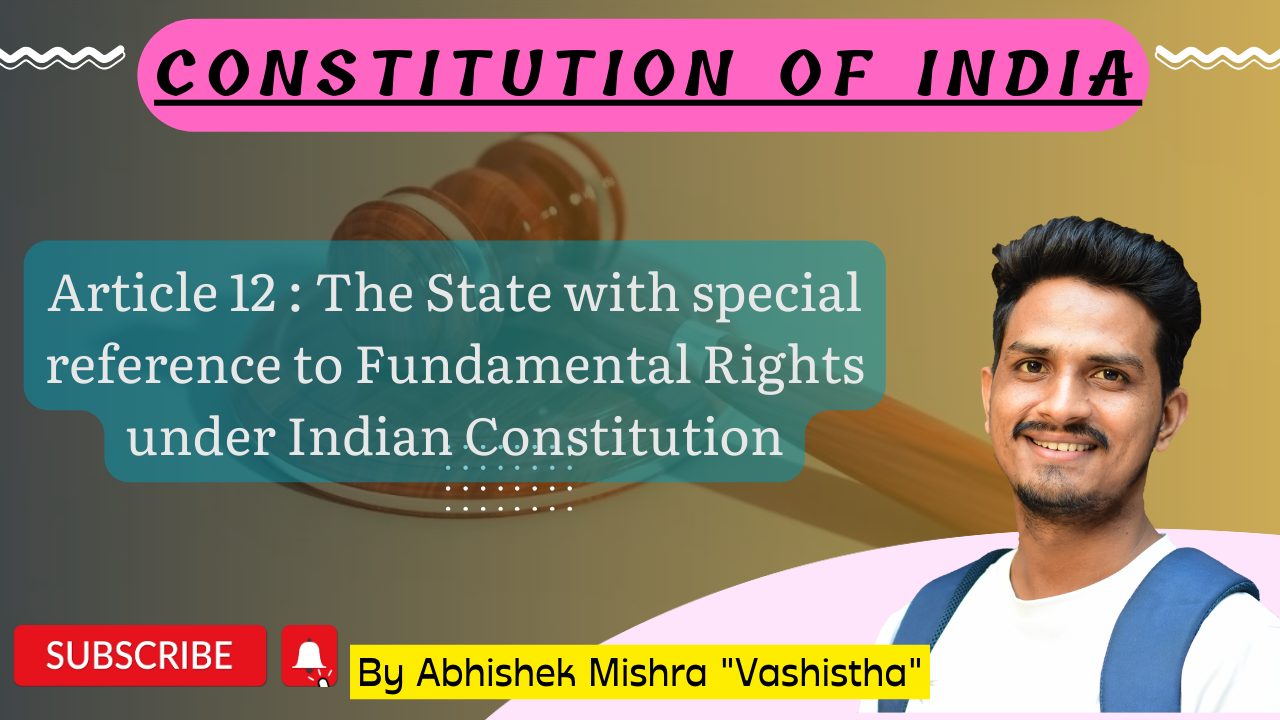
The Five Jewels of Justice: Writs Under the Indian Constitution - A Deep Dive [Article 32 & 226 of Indian Constitution]
Frustrated with inaction from authorities? Facing an unfair court decision? Don't despair! The Indian Constitution equips you with powerful tools for justice – Writs. Dive into this comprehensive guide exploring Habeas Corpus, Mandamus, Prohibition, Certiorari, and Quo Warranto. Discover their history, legal principles, and landmark judgements that shaped their use. Empower yourself to safeguard your rights and navigate the legal system effectively!

Article 21 of the Indian Constitution: Safeguarding Life and Personal Liberty
Fearing arbitrary arrest or struggling to access basic necessities? Article 21 of the Indian Constitution stands guard. This fundamental right safeguards your life and liberty, demanding adherence to fair procedures before any restriction. Delve deeper and explore landmark cases, the concept of "procedure established by law," and the unwavering principles of natural justice that ensure your rights are protected.

Article 20 of the Indian Constitution: Safeguarding Justice and Rights
Discover the legal bulwark within Article 20 of the Indian Constitution, shielding individuals from unjust prosecutions. Delve into the doctrines of ex post facto laws, double jeopardy, and protection against self-incrimination, weaving the fabric of fairness in the criminal justice system. Unravel the constitutional principles that affirm the right to a fair trial and the presumption of innocence. Step into the realm where justice is fortified by constitutional guarantees.

Article 19 of Indian Constitution - Freedom Unwrapped: Exploring the Vibrant Tapestry of Expression in the Indian Constitution
Frustrated with potholes? Want to write a fiery critique of the government? India's Article 19(1)(a) guarantees your right to express yourself freely. But like your grandma's chili, freedom of speech has its limits. This article explores the various facets of this right, landmark cases that shaped it, and the importance of using it responsibly in a democracy.

Sentinels of Liberty: Unraveling Article 13 in the Indian Constitution through Landmark Cases
Standing as a cornerstone of the Indian legal system, Article 13 of the Constitution serves as a powerful safeguard for fundamental rights. It ensures that no law, existing or future, can encroach upon these fundamental rights guaranteed by Part III of the Constitution. This article dives into the intricacies of Article 13, exploring its impact on pre-existing and post-constitutional laws, the concept of judicial review, and the doctrines of eclipse and severability that further strengthen its protective power.

Decoding Fundamental Rights in the Indian Constitution and Unraveling the Definition of 'State' under Article 12
Embark on a revealing exploration into the heart of the Indian Constitution with our article, "Decoding Fundamental Rights and Unraveling 'State' under Article 12." Dive deep into the intricacies of legal entitlements designed to protect the very fabric of human existence – Fundamental Rights. Discover the profound significance of each category, from Natural Rights to Fundamental Rights, each playing a vital role in upholding justice, liberty, and equality. Our journey ventures into the core of the Indian Constitution, where Fundamental Rights take center stage in Part III (Articles 12 to 35). Explore the key features that define these rights, such as equality before the law, freedom of speech, and protection against exploitation. Immerse yourself in the constitutional safeguards that aim to ensure the dignity and well-being of every individual in society. A critical juncture arises as we dissect Article 12, demystifying the term 'State' and unraveling its diverse entities responsible for safeguarding Fundamental Rights. From government and parliament to local authorities and other institutions, understand the comprehensive network crucial for the protection and enforcement of these rights. Delve into the nuanced interpretations of 'other authorities' within Article 12, navigating through legal doctrines such as ejusdem generis and broader perspectives emphasizing public importance. Witness the evolution of judicial understanding through landmark cases, providing invaluable insights into the dynamic interplay between constitutional provisions and societal needs. Join us on an intellectual odyssey, where legal scholarship meets practical significance. Our article serves as a beacon for those seeking a profound understanding of constitutional intricacies, shedding light on the evolving landscape of Fundamental Rights and the pivotal role of the 'State' in their preservation.




